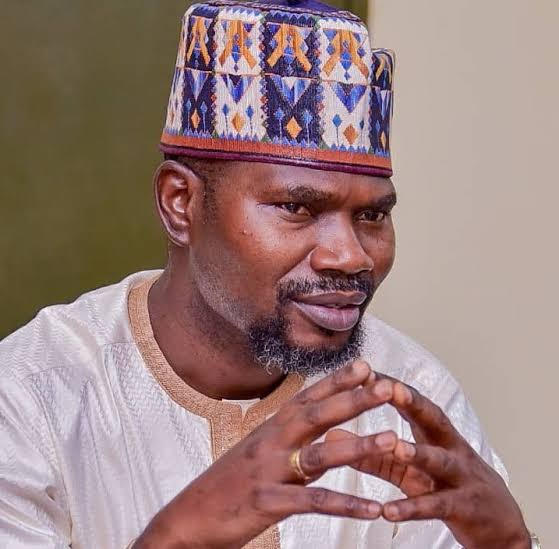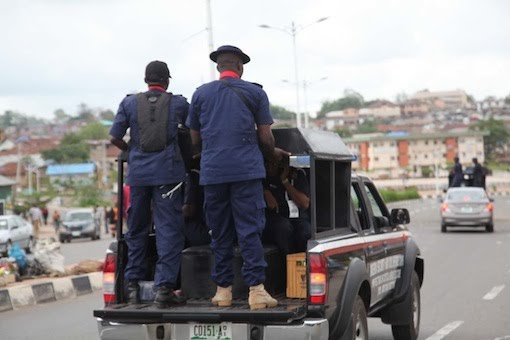Ismail Omipidan was the Chief Press Secretary to former Osun State Governor Adegboyega Oyetola. As his media aide, he still speaks for him till date.*
In this interview, Omipidan speaks on the proceedings of the Governorship Elections Petitions Tribunal, which returned his principal as duly elected governor of the state in the July 16 elections.
Excerpts:
The Osun Governorship Election Petition Tribunal returned your principal as duly elected governor of the state. Was it an expected judgment?
For me as a political reporter of several years standing and also a public affairs analyst, I knew from the day I saw the petition that we had a water tight case against Senator Ademola Adeleke and the PDP. Besides, on the day that he was declared as winner of the election, I had the privilege of appearing in a live programme with Honourable Bamidele Salam who is a serving member of the House of Representatives on the platform of the PDP.
We were engaged in that live television programme to look at the outcome of the election. It was on the 17th of July, a day after the election, and it was the day the results of the election were declared. I stated clearly on the day that even though I hadn’t seen results from other local governments but from the reports coming in from Ede North and South where I deployed monitors, I could say that there were issues with the results that were declared. I went further that day to state that while Osogbo has the highest number of voters, the election ended in Osogbo by 4pm.
Even across the state, journalists who came to cover the election and those on ground had reported that voting had ended by 4pm and that across the State voting had ended by 7pm. Surprisingly, by 10:30pm, on the day of the election, there was still voting in Ede North and South. I went further to state that I heard it on good authority that those who were voting by 10:30pm in those areas were not on queue as at 2:30pm in accordance with INEC’s guidelines. Therefore, even before we filed our petition, I knew that there were issues with the results that were declared by INEC. By August, I went further to postulate that my principal never lost the election but only lost the vote count and I think that the tribunal judgment has vindicated that position.
These were the positions that you canvassed at the tribunal?
Yes! Apart from the issue of over voting which we pleaded at the tribunal; we also challenged his (Adeleke’s) eligibility to contest for the election. It will interest you to know that all the three judges of the tribunal agreed with us that we were able to prove a forgery case against him (Governor Adeleke) but that he had acquired an additional qualification.
In their (tribunal members’) wisdom, they said they think he was qualified to contest the election. I have gone further in my analysis of the judgment to state categorically that if we go by the popular saying that you cannot build something on nothing, those additional qualifications amount to a nullity because the basis upon which those additional qualifications were acquired is faulty. We believe very strongly that when they appeal the judgment, the issue of disqualification will still feature prominently at the appellate court.
The PDP is faulting the judgment on the basis that the tribunal chairman and the other member was biased towards your side and that the evidence that they put forward were discountenance and that the tribunal relied on the evidence that you provided. How true is this?
Firstly, as somebody who has covered tribunal proceedings in the past, since 1999 up until recently when I joined Osun State Government on Leave of Absence from The Sun Newspapers; I know for a fact that when proceedings are on, whether election petition or any other case, when you (as a party) discover that the presiding judge has shown bias either from his utterances or conduct, you have a duty to point it out in the open so that it would be on record that at one point in time in the court it was raised and you will tell journalists that the judge is bias. I tell you that I was at the proceedings from the beginning to the end.
There was no time either the counsel from the First Respondent, the Second Respondent or even the Third Respondent that any issue of bias was raised against either the chairman or any member of the panel. I raised this issue of bias a few days ago when I had the privilege of appearing alongside Mr. Niyi Owolade, a former attorney-general of the state who incidentally was one of the lawyers of the respondents at the tribunal. I challenged him, I said you are talking about bias, did you at any time ever raise the issue and he couldn’t reply me. The court records are there. There was no time that they raised the issue of bias from the beginning to the end. They only began raising it after the judgement had been delivered. And it was raised outside the court had risen not during the pendency of the matter.
The question is, at what point did they start to notice the bias? Two; the law has no place for sentiments and emotion. It is about the facts that have been presented to the courts. Immediately after the election, a return was made on the 17th. Once the return was made, we had 21 days from the day the results were announced to file our petition. In accordance with the new Electoral Act, the materials that we need to prove the case of over voting are the BVAS reports, Form EC8a where results are tabulated and other relevant materials. We applied for all these materials and we were obliged about 10 days after we applied for them.
In the end, we were able to establish over voting in over 700 polling units. That formed the basis of our petition at the tribunal. This is in addition to the issue of eligibility of the Second Respondent. After filing our petition in August, the PDP now went and obtained another BVAS report which INEC counsel now referred to as syncronised BVAS reports. The next question to ask is what was used to declare Senator Ademola Adeleke as the winner in July 17th? By implication, they are saying that since the declaration of the governor as the winner, the data has not been syncronised. If that is so, what was the basis of declaring him the winner in the first place? The tribunal held that what they (the PDP) submitted in spite of the fact that they presented a syncronised report indicated that there were still some discrepancies in the said reports.
In that same report, we were able to establish some discrepancies in over 100 polling units. During the course of those proceedings, INEC admitted that there was over voting. The PDP witness who was hired by Senator Ademola Adeleke to analyse the BVAS machines, also testified that there was over voting. The only difference between his testimony and that of an INEC witness was that he claimed that there was over voting in only six polling units. The tribunal now held that, with these discrepancies and with the fact that INEC has not withdrawn the BVAS reports issued to us and that INEC did not at any point in the process of issuing it to us notified us that what we had was an inchoate, incomplete or unsyncronised report document. The tribunal agreed with us that there was over voting. It is a clear case. That was how we were able to demolish the lies told by Governor Ademola Adeleke and his party, the PDP. Usually, in election petitions, the beneficiary, in this case, Adeleke, the sponsor -PDP and INEC are supposed to be on the same page. But in this very instance, they were not. In fact, at some point in the course of the proceedings, PDP had to disown the INEC’s synchronised BVAS report. So, what we have established in court, alongside what the tribunal has been able to find out, is that INEC needs to work very well and protect its IT infrastructure in future elections. That was our intention in the first instance.
From the way you’ve spoken, you are of the view that the tribunal had been very fair in its judgment and that your side did not in any way compromise the panel as claimed by the PDP?
I’m sure you are a very experienced journalist? I hope they will be able to prove this allegation? The problem with members of the PDP is that they judge others by their standards. Everybody who knows members of the Adeleke family knows that they believe in their money and their belief is that there is nothing money can’t buy. Maybe they met a brick wall here and that is why they are complaining that the judgment was bought.
The PDP has expressed their resolve to appeal the judgment; does that in any way bother your camp?
I don’t know whether you’ve had the opportunity of reading the judgment? The Majority judgment is of about a hundred pages while the minority judgment is just eight pages. From my experience of covering the judiciary, the minority judgments are usually more in volume than the majority judgment most of the time. I do not see how the eight page minority judgment can impeach the integrity of the majority judgment in this instance.
It was after we filed our petition that they came up with the issue of syncronised BVAS report. It was an attempt to cover up whatever anomaly they have discovered through the petition that we filed. We are very confident that we will carry the day at the day. I told you that the issue of disqualification is still there. The tribunal said we were able to prove that he forged his documents, the only reason the tribunal didn’t agree with us that he was not eligible to contest was because he had acquired additional qualifications. That prayer is another potentially strong angle to explore. Besides, the minority judgement’s strongest position was that we needed a voter register as part of the materials to prove over-voting. With due respect, the 2022 Electoral does not envisage that. With BVAS, you can only take cognisance of those accredited to vote not total number of voters on the register. That is one. Two, the argument of network failure which was raised by the respondents and rechoched by the learned judge in his minority judgement is neither here nor there. Are you saying there was no network to transmit data more than one month after the election? If this so, at one point will intending petitioners now file their petitions since they have just 21 days within which to do so?




